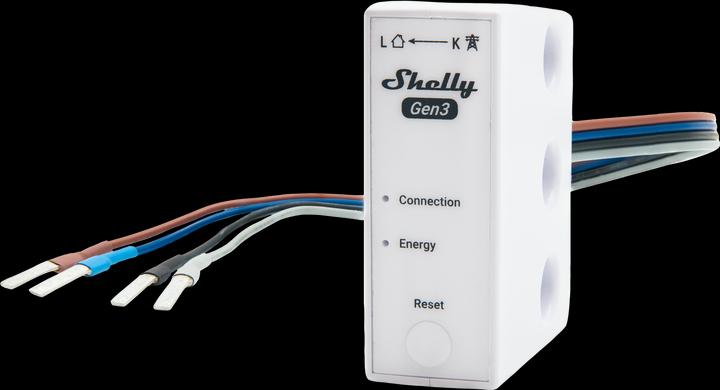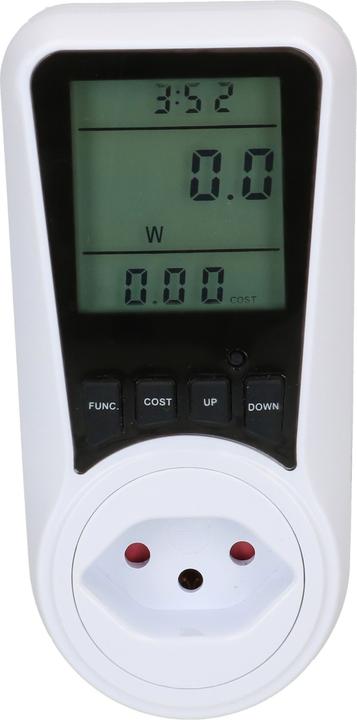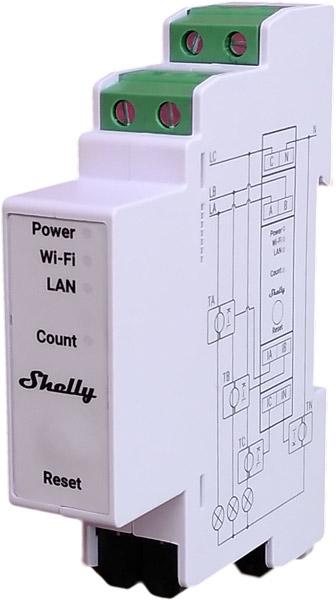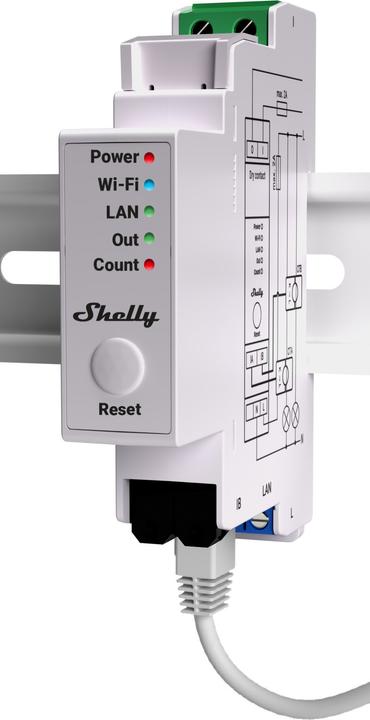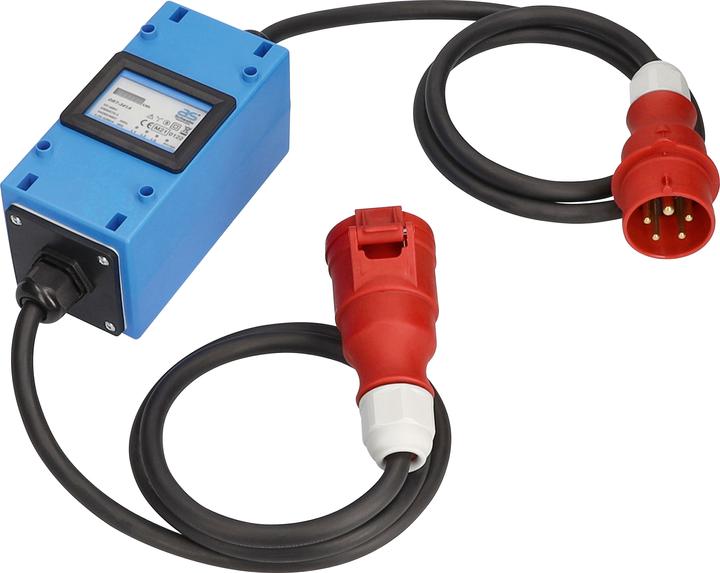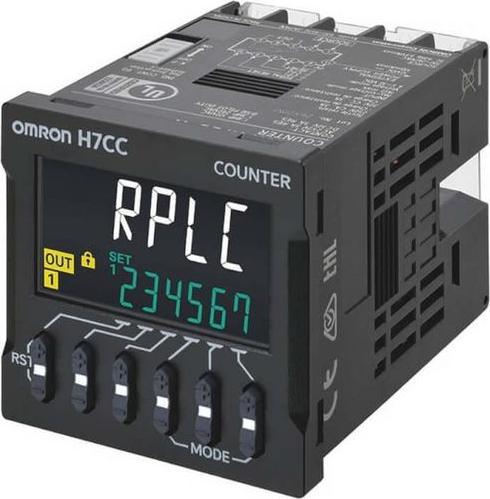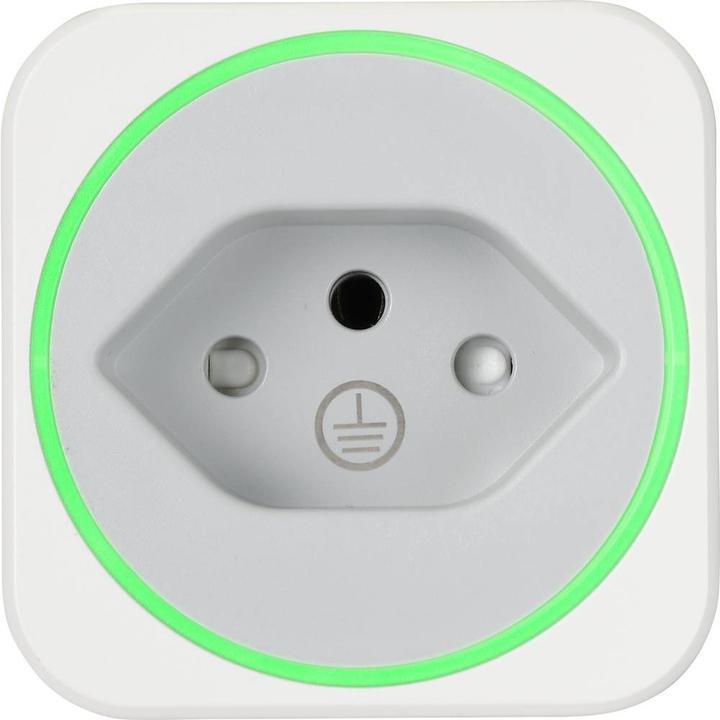
Too Many Energy Monitors? Here's How to Choose the Right One
Discover the key features to consider when selecting the perfect energy monitor for your needs.
Last updated 4 weeks ago. Automatically generated content.


Select options and limit the number of products
The type of energy meter determines how electricity usage is measured and monitored, crucial for understanding consumption patterns and optimizing energy efficiency. Choosing the right meter type can lead to more accurate billing, better energy management, and potential cost savings.
Popular options (you can select more than one)
Energy meter
Typical price
85.– to 300.–Measures total energy consumption over time, providing a comprehensive view of usage.
Ideal for monitoring overall electricity usage, helping to identify trends and potential areas for saving energy.
Bestseller
Multifunction measuring device
Typical price
180.– to 570.–Combines multiple measurement functions, such as voltage, current, and power, into one device.
Perfect for detailed analysis of electrical systems, offering insights into various aspects of energy usage for enhanced decision-making.
Bestseller
Operating hours counter
Typical price
38.– to 110.–Tracks the duration that equipment has been operating, aiding in maintenance scheduling.
Useful for ensuring timely upkeep of machinery and avoiding unnecessary energy consumption due to overuse.
Bestseller
Pulse counter
Typical price
48.– to 150.–Measures energy usage in pulses, commonly used with older systems to track consumption.
Helpful for integrating with existing infrastructure where modern meters might not be compatible, enabling effective energy monitoring.
Bestseller
Maximum current is the highest electrical current an energy monitor can handle, affecting its compatibility with different power setups. Choosing the right maximum current ensures the monitor can safely track energy usage without overloading or malfunctioning.
Popular options
Up to 10 A
Typical price
160.– to 550.–Suitable for low-power applications like small appliances and lighting.
Ideal for households with limited power demands, ensuring accurate monitoring without the risk of overload.
Bestseller
11 - 65 A
Typical price
64.– to 270.–Designed for moderate power consumption, covering larger appliances and heating systems.
Perfect for typical household energy needs, providing reliable monitoring for everyday usage.
Bestseller
66 - 100 A
Typical price
100.– to 270.–Capable of handling high-power setups such as electric vehicle chargers and large HVAC systems.
Recommended for homes with extensive energy consumption, ensuring comprehensive tracking for maximum efficiency.
Bestseller
Nominal voltage refers to the standard voltage level that an energy monitor can handle, which is crucial for ensuring compatibility with your electrical system. Choosing the correct nominal voltage ensures the monitor operates safely and effectively, preventing potential damage or inaccurate readings.
Popular options
Up to 230 V
Typical price
48.– to 240.–Suitable for residential applications with standard voltage levels.
Ideal for monitoring energy consumption in homes, ensuring accurate readings and safe operation.
Bestseller
231 - 330 V
Typical price
85.– to 360.–Designed for commercial settings with higher voltage requirements.
Provides precise monitoring for businesses, ensuring compliance and efficient energy management.
Bestseller

Shelly Pro 3EM 120A
331 - 500 V
Typical price
140.– to 370.–Tailored for industrial environments with high voltage systems.
Offers robust performance for factories, supporting large-scale operations with reliable energy tracking.
Bestseller
The protection type, indicated by the IP code, determines how well an energy monitor is shielded from dust and water. Selecting the appropriate IP code ensures the device's durability and performance in different environments.
Popular options (you can select more than one)
IP20
Offers protection against solid objects over 12 mm, such as fingers, but no protection against water.
Suitable for indoor use in dry environments, ensuring basic safety without exposure to moisture.
Bestseller
IP65
Provides complete protection against dust and low-pressure water jets from any direction.
Ideal for outdoor use or areas prone to dust and moisture, ensuring reliable operation in challenging conditions.
Bestseller
IP44
Protects against solid objects over 1 mm and water splashes from any direction.
Recommended for areas with moderate exposure to dust and moisture, like bathrooms or kitchens.
Bestseller
IP66
Offers total protection against dust and strong water jets from any direction.
Best suited for harsh outdoor environments or industrial settings, ensuring robust performance under extreme conditions.
Bestseller
Selecting the right brand of energy monitor can significantly influence reliability and functionality, impacting how effectively you can monitor energy usage. Top brands like Steffen and Shelly are known for their innovative and user-friendly designs, while Brennenstuhl provides robust and durable options.
Popular brands (you can select more than one)
Steffen
Specializes in high-quality, innovative energy monitoring solutions.
Offers user-friendly interfaces, ideal for those seeking efficiency and ease of use.
Bestseller
Shelly
Known for smart energy monitors with advanced connectivity features.
Perfect for tech-savvy users looking for integration with smart home systems.
Bestseller

Shelly Pro 3EM 120A
Brennenstuhl
Renowned for durable and reliable energy monitoring products.
Great for long-term use, offering robust construction and consistent performance.
Bestseller
Voltcraft
Offers versatile energy monitors with comprehensive data analysis.
Ideal for users needing detailed insights into energy consumption.
Bestseller
Max Hauri
Focuses on practical, straightforward energy monitoring devices.
Suitable for those who value simplicity and reliability in energy tracking.
Bestseller
